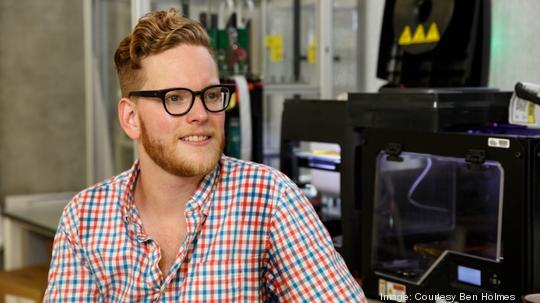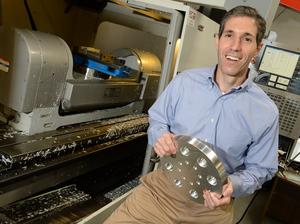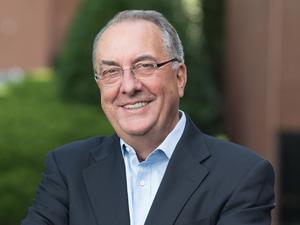
D.C.’s Nanochon LLC just got a step closer in its quest to get a 3D-printed implant to market — thanks to $2 million in fresh funding and the potential to raise more.
The company’s seed round, led by University of Virginia Licensing & Ventures Group’s seed fund, closed at $2 million in September, Nanochon co-founder and CEO Ben Holmes said in an interview. And it’s oversubscribed, now in the process of raising more before a second close.
The backing positions Nanochon, one of our 2021 Startups to Watch, “to do everything we need to do to be ready to go to the clinic,” Holmes said. The goal: start enrolling its first patients for a phase 1 trial in early 2023.
To get there, the firm plans to do one more animal study, to assess the product’s performance in horses, and perform additional safety testing required to get a regulatory green light. The work also involves manufacturing and validating the device, which replaces lost or damaged cartilage as an alternative to replacement surgeries.
Nanochon is doing that with Bio Convergence Co. (BICO), after striking a $1.5 million commercial agreement for the Swedish biotech to develop the implants. BICO, which rebranded from Cellink earlier this year, said it’s also investing $400,000 in the seed round.
BICO had approached Nanochon in March about a partnership, Holmes said. Nanochon is working with its Germany and Arizona-based subsidiary, called Scienion, to take the existing product material and designs and printing process, “which are all essentially laboratory scale,” to grow that and establish quality, he said. “It’s not about doing continued research; it’s about taking what we have now and making it scalable and repeatable and verifiable.”
If all goes according to plan, Holmes said, the company hopes to get the Food and Drug Administration’s approval in late 2025 or early 2026. That roadmap requires more funding — a roughly $5 million Series A round to finance the first clinical study, and about $15 million in Series B financing to complete all of the trials, he said.
The good news: A couple of similar companies have completed big exits, including CartiHeal Inc.’s $500 million sale to Bioventus LLC in August and Cartiva Inc.'s $435 million acquisition by Wright Medical Group NV in 2018. Those deals help validate Nanochon’s objective and signal what’s possible, he said. “These are both companies that essentially were doing exactly what we’re trying to do.”
The latest raise, Nanochon’s first institutional round, comes later than planned, largely because the Covid-19 pandemic made investor meetings more difficult even in the first part of 2021. “The disruption to fundraising was really stressful,” Holmes said.
But “once investors got comfortable with the idea of writing a check to someone they’d never met face to face, and also got comfortable just using virtual platforms, the process just accelerated around spring of this year,” he said.
The 6-year-old startup intends to target its device to sports medicine surgeons and their patients, athletes ages 20 to 50 who have started to develop knee problems because of a sports injury or accident, or suffer from early cartilage loss. Nanochon wants to provide these patients a shorter recovery and longer-lasting implant at a lower cost.
When the 3D-printed implant reaches patients, it could sell at about $3,000 — about the cost of a knee replacement. For reference, donor tissue graft, an existing technique used in such cases, can cost around $10,000. Nanochon also aims to replace the other option — chronic pain medication — so patients don’t prolong otherwise inevitable joint replacement surgeries.
Nanochon’s technology, licensed from George Washington University, has the properties of a cell growth platform. It’s made of a novel synthetic material and produced on a 3D printer to control its physical structure and characteristics.
Holmes and co-founder Nathan Castro started the company in 2014. Both earned doctorates from GWU with work in the university’s tissue engineering lab.




